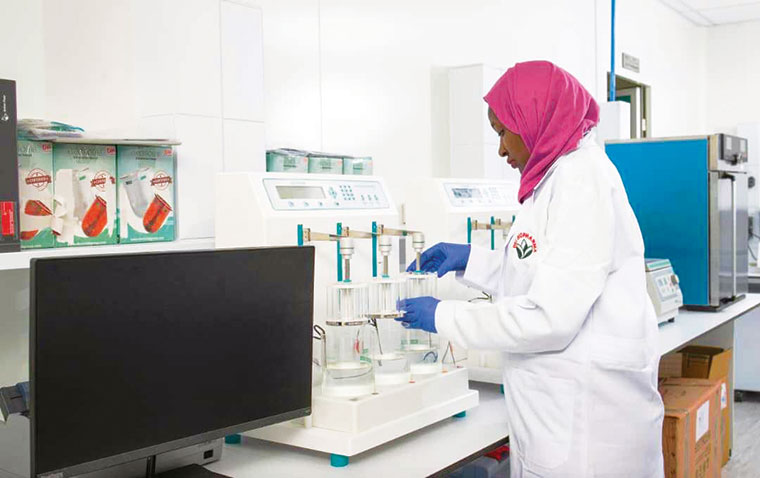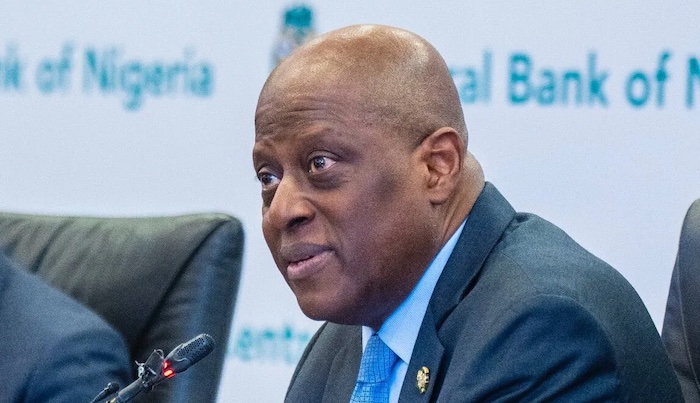
For decades, cancer has been spoken of in hushed tones across the world, a death sentence for millions, especially in regions like Africa where access to treatment is scarce. But from a lab in Kampala, a Ugandan scientist is rewriting that narrative.
Dr Matthias Magoola, founder of Dei Biopharma Ltd, has unveiled inventions that could fundamentally change how the world prevents, detects and treats cancer. His work, now recognized by top scientific journals and the U.S. Food and Drug Administration (FDA), promises not only hope but affordability and accessibility for the global South.
A UNIVERSAL VACCINE FOR CANCER
At the heart of Dr Magoola’s break-through is a universal cancer vaccine platform, the first of its kind, published in Vaccines, a leading peer-reviewed journal based in Switzerland and the U.S.
The study, titled Engineering Universal Cancer Immunity: Non-Tumor-Specific mRNA Vaccines Trigger Epitope Spreading in Cold Tumors, introduces a technology that transforms “cold” tumors, those resistant to treatment, into inflamed, therapy-responsive environments.
Unlike existing personalized cancer vaccines, which cost upwards of $150,000 per patient and can take months to produce, Magoola’s platform is designed as an off-the-shelf solution.
By encoding non-tumor-specific antigens, it trains the immune system to recognize and attack a wide range of cancers. “This is not just about curing cancer,” Magoola said. “It’s about erasing cancer as a death sentence for future generations. For the first time, humanity has a real path to making cancer a preventable and permanently treatable disease.”
Pre-clinical trials show promising results: when combined with checkpoint inhibitors, the vaccine achieved a 70 per cent tumor clearance rate. Costs could drop by as much as 100-fold, making treatment feasible in low-resource regions like sub-Saharan Africa.
“This is a moonshot moment in cancer immunotherapy,” one international expert remarked after reviewing the findings.
FDA WAIVES CLINICAL TRIAL PERIOD
Just weeks after unveiling the vaccine platform, Dr Magoola announced another seismic development: the U.S. FDA had waived clinical efficacy testing for two of Dei Biopharma’s therapies, including bio-similar versions of pembrolizumab (Keytruda) and trastuzumab (Herceptin).
These drugs, which currently cost patients millions of dollars over the course of treatment, will now be produced in Uganda at a fraction of the price. “Eighty per cent of the world’s population cannot afford cancer treatment,” Magoola told delegates at the 5th Uganda Conference on Cancer & Palliative Care.
“Our goal is to change that.” His team is pioneering synthesis-based therapeutic proteins that bypass the complex recombinant processes driving up global drug prices. Among the patents already approved or filed in the U.S.:
• A combined mRNA and CRISPR-Cas9 technology targeting cancerous cells with surgical precision.
• An early detection system that alerts the immune system to tumors at their earliest, most treatable stage.
• A CAR-T cell immunotherapy projected to cost less than $100 per patient, compared to the current $500,000 price tag.
Magoola is also negotiating with the Uganda Cancer Institute to establish a local gene and cell therapy unit at Mulago, ensuring advanced treatments can be developed and delivered in Uganda.
For Uganda, the implications go beyond medicine. By producing drugs locally, Dei Biopharma estimates it could generate billions in tax revenue. Magoola points out that Keytruda alone earns $30 billion annually, more than the combined revenues of all East African nations.
“This is not just science. It’s economics,” Magoola said.
“By leading in biotechnol- ogy, Uganda can create jobs, raise GDP, and claim a share of an industry that has long left Africa behind.”
In recognition of his contributions, Magoola was named one of Uganda’s national “Faces of Science” in June 2025. And with the FDA already accepting plans for two other drugs—liraglutide and semaglutide— Dei Biopharma projects over $1 billion in sales within just 90 days of approval.
The story of cancer is still one of pain and loss for millions. But Magoola’s work hints at a different future—where treatment is not the privilege of a few, but a right for all. From a lab in Kampala, a Ugandan scientist is proving that the next great chapter in cancer care might not come from Silicon Valley or Europe—but from Africa itself.
“This is about hope,” Magoola said quietly. “And hope, this time, comes from home.”



